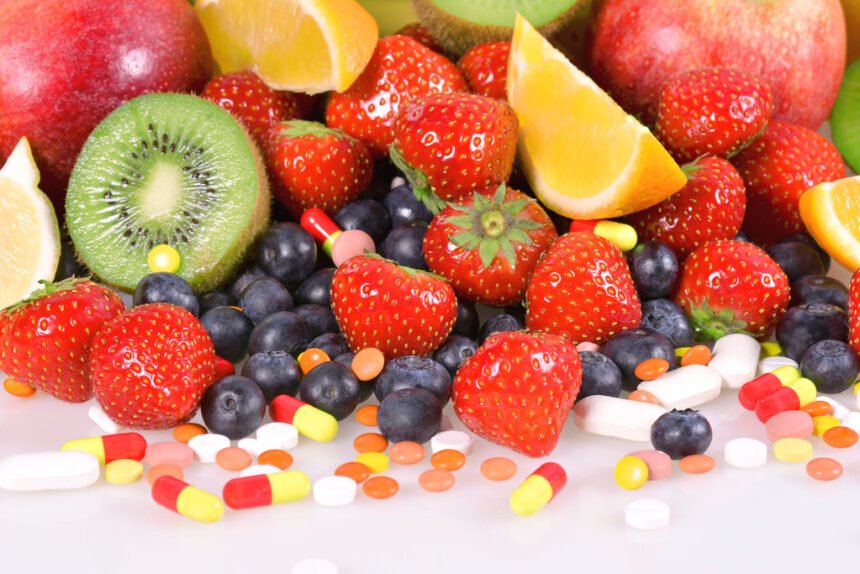Why is Vagina Care so Important?
My vaginal health is important to my overall wellness, and I treat it as such. A healthy vagina has biological balance, natural lubrication and elasticity. But due to hormonal changes in the female body, menopause or a poor hygiene we can see disturbance leads into dryness of vagina and itching then infections etc. The Vital Nutrients Vitamins for a Healthy Vagina.
There are particular vitamins and minerals that help to keep the vagina Lively. Vitamin C: Increases collagen production to strengthen vagina and improve elasticity. Vitamin E helps keep the tissue lining of your vagina healthy and normal, while Vitamin D is important for immune system function as well as your vaginal health. Omega-3 fatty acids: It helps in anti-inflammatory and encourage healthy tissues of the vagina. Probiotics: Probiotics keep the vaginal microbiome healthy and avoid infections. Relative to point one, hormonal balance and, in particular, estrogen and progesterone mediation of the microbiome regulate the vaginal ecosystem.
Harmonal imbalance effects on vagina
The hormonal imbalance has particularly large effects on vaginal health. *Vitamin B6* implicated in hormonal balance and vaginal barrier integrity, whereas
*Folic acid* is involved in tissues of the vagina growth and maturation. *Iron* assist in blocking the vaginal dryness and soreness and *Zinc* assist in enhancing the shots and mending in the vagina. *Calcium* plays a vital role in regulating the tone of the vaginal muscles, and therefore it’s critical for the health of the vaginal tissue. Lifestyle choices that affect vaginal health.
Vitamin and nutrient intake are some aspects vital to modify when coming to lifestyle changes to promote vaginal health. *Continued intake of fluids* ensures that the female anatomical region is adequately moist for proper, frictionless intercourse and *proper hygiene* assists in avoiding bacterial penetration. Other preventive measures include; *not using detergent *physically abstinence from *douching* and *smoking*. *Perennial examination* and *tests* can reveal complications as soon as possible, therefore treatment should be done quickly.
Vitamin C is an essential nutrient that cannot be synthesized in the body and therefore should be taken through the diet Vaginal health is an important aspect that must not be overlooked especially for women of reproductive age Vitamin C plays a major role in strengthening the walls of the vagina and making them more elastic While it is recommended that after the teenage years a woman should take at least one glass of orange juice containing Vitamin C per day In cases where the elasticity
Vitamin C is one of the most important vitamins the human body requires and it serves many essential roles in the female reproductive system including the vagina. And finally, it also assists in endogenous synthesis of collagen that in turn enhances vaginal tone, elasticity and substance. Vitamin C also contributes to the establishment of healthy bacterias in the vagina so that there will not be inflammation. Also, vitamin C contributes to a balanced production of hormones in the body, which is critical for the Vagina. Essential vitamins like vitamin C found in oranges, lemons, spinach, and similar other foods are helpful for vagina health.
Omega 3 fatty acids are essential nutrients for the human body and a healthy diet should contain foods that are rich in these fatty acids for the overall health of the reproductive system.
Omega-3 fatty acids are polyunsaturated essential fatty acids that have an important impact on physiological well-being of vagina. Among the functions, they serve as anti-inflammatories as well as aiding the formation of healthy vaginal tissue. Hence, omega-3 fatty acids also contribute towards the development of a proper bacterial flora in the human vagina that is significant in reducing infection. On the same note, omega-3 fatty acids also assist in the regulation of the hormonal equilibrium in the body which is practicing for proper VAGINAL health. It also stated that certain foods can boost or degrade the conditions of the vagina; the foods include foods rich in omega-3 fatty acids like salmon and flaxseeds.
Vitamin E plays a very important role in the overall health of a woman’s vaginal area.
Vitamin E being one of the powerful nutrients is crucial to the wellbeing of the vagina. Aids in the development of healthy vaginal tissues and assists in the natural development of healthy discharge. Another benefit of Vitamin E is that it also affords the vagina a measure of protection against free radicals that cause infections and other complications. In the same way, vitamin E is useful for regulating hormonal balance which is important for the general vaginal health.
Consumption of vitamin E, present in foods such as nuts and seeds, may also aid in maintaining proper vaginal health. This paper aims to explore the role of Probiotics in vaginal health in order to help women who is suffering from it.
Probiotics are live microorganisms that are good for the vaginal ecosystem and, therefore, essential in the regulation of the female reproductive system. They aid in the maintenance of favorable bacteria in the vagina, which aids in keeping infections at bay. It also has qualities to maintain the hormonal balance in the body which is very much required for the proper functioning of vaginal tract. In the same way, probiotics also have the ability to boost the immune system of the body to aid in prevention of diseases and sicknesses. It is noteworthy that the consumption of foods containing antibiotics, such as yogurt or kefir, has a positive effect on vaginal health.
Vitamin D is an important nutrient that provides significant support to the vaginal health of women. It assists in the building of healthy vaginal tissues and ensures that there is adequate production of natural lubricants. It also plays a role in the immune system, which is instrumental in keeping off diseases and other ailments. Furthermore, vitamin D plays a role in the regulation of hormones in the body, and this is extremely important for the proper functioning of the vagina. Other foods that are helpful to the vaginal health include foods that contain vitamin D like fatty fish and some dairy products that are fortified.
Vaginal health and the role of vitamins in maintaining it
Caring for the vagina is an important factor in every woman’s life and it is crucial to understand how to do it properly. The consumption of certain vitamins as part of a balanced diet can help protect against infections, assist the body’s defense mechanisms, and regulate the acidity levels in the vagina. Here is the list of some of the important vitamins and nutrients that are beneficial for the vaginal health.
1. Vitamin A
This vitamin plays a vital role on caring for the health of the membrane for instance the vaginal membrane. They have also revealed that it plays an important role in tissue repair and maintenance helping to maintain the integrity and strength of the vaginal walls. Lack of Vitamin A causes dry skin and people affected by this vitamin are likely to catch diseases easily.
Sources: Carotenes – carrots, sweet potatoes, spinach; Lacto and Lutein – dairy products.
2. Vitamin C
Vitamin C has been known to increase body’s immunity and helps to combat different types of infections including the ones that occur in the vaginal area. It also has some benefits concerning the synthesis of collagen, which is vital for the strength of the vaginal walls.
Sources: Here is a list of some of the products that are affected: Oranges, Lemons, Limes, Grapefruits, Strawberries, Bell Peppers, Broccoli.
3. Vitamin D
Vitamin D is indispensable in the defense system of the organism and contributes to the proper functioning of the microorganisms in the female genital tract thus preventing bacterial vaginosis. It was also disclosed that Ample amounts of Vitamin D can also reduce the instances of yeast infections.
Sources: Fat-soluble vitamins include it, sunbathing, and fatty fish, while darker skin people can get it from fortified milk, and supplements.
4. Vitamin E
Like all vitamins, vitamin E is now known to be an antioxidant – a nutrient that shields the body’s cells from injury. It has also recommended benefits in circulation, which is vital in vaginal health. Also, they should note that Vitamin E can assist in reducing vaginal dryness, which often develops in women experiencing menopause.
Sources: Some of the foods that are considered to have the potential of increasing the blood cholesterol levels include nuts, seeds, spinach, and vegetable oils.
5. B Vitamins
Vitamin prescriptions include B vitamins especially B6, B9, and B12, which are crucial to the overall health of the cells and the metabolism. They assist in keeping the vaginal lining and any form of barrier that the body erects against prospective infections sound.
Sources: It can be seen in meats, fish, eggs, dairy, whole grains, legumes, green vegetables, whole grain cereals, and bread.
6. Probiotics
Although not a vitamin, probiotics are essential nutritional components that contribute to the balance of bacteria in the vagina. They prevent many forms of bacterial infections such as bacterial vaginosis, or yeast infections, by assisting in colony growth of friendly bacteria.
Sources: Some of the examples of foods containing live active cultures of bacteria and yeast are yogurt and kefir, sauerkraut and other fermented foods.
7. Omega-3 Fatty Acids
Omega-3 fatty acids belong to the omega-3 fatty acid group and possess certain anti-inflammatory agents that are useful in maintaining the overall wellness of cells in the body. They can help in the regular lubrication of the female reproductive organ to avoid dryness and lack of fluidity.
Sources: Common sources of omega-3 fatty acids include fatty fish, flaxseeds, chia seeds and walnuts.
It is also important to note that there are some habits that can affect the well-being of the vagina and should therefore be avoided or adopted in some cases as follows:
Lifestyle changes for vaginal health
In addition to a vitamin-rich diet, certain lifestyle practices can enhance vaginal health:In addition to a vitamin-rich diet, certain lifestyle practices can enhance vaginal health:
- Hydration: There is need to ensure that tissues are well hydrated and one of the ways of doing this is by taking enough water.
- Hygiene: Cleanse itself properly but do not use abrasive soaps and laundry liquids that can harm the natural constitution.
- Clothing: Although it is good to always wear fresh clothes, if you must wear dirty clothes, wear breathable, cotton underwear to minimize the accumulation of sweat.
- Safe Sex: One of the ways through which individuals can avoid infections that are related to the sexes is to practice safe sex.
- Regular Check-ups: Get tested for health conditions and diseases as advised by your doctor, pediatrician or other trusted health practitioners.
Conclusion
It must be factored in that a woman’s sexual health is vital to her wellness, and aim at preventing vaginal infections and keep the vagina healthy by taking a lot of vitamins. These are elements of a healthy diet, which are essential in order to avoid everyday problems and maintain a good health. However, if you want to get to know more about your vagina and certain issues that you think you are experiencing, it is always best to seek advice or consultation with a medical practitioner. It is understood that the vaginal health is the essential factor to be taken into consideration for the proper maintenance of women health and vitamins and minerals are very essential for this part. Through proper dieting by taking foods with nutrient inputs such as Vitamin C, Vitamin E and Omega-3 fatty acids besides adopting other good practices such as taking a lot of water and practicing good hygiene, women will encourage the best vaginal health.
Remember, vaginal care is increasingly important for the health of a woman and her baby.


